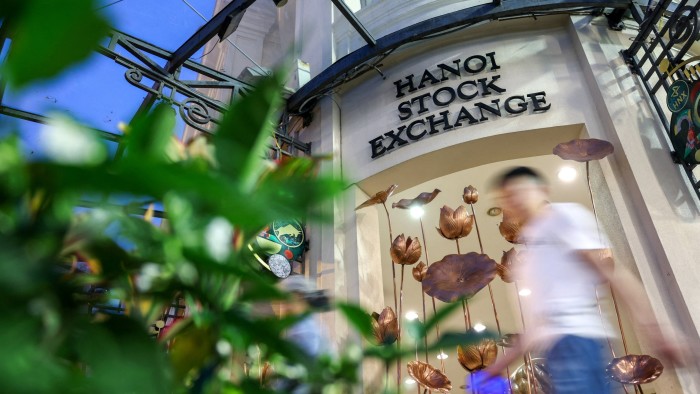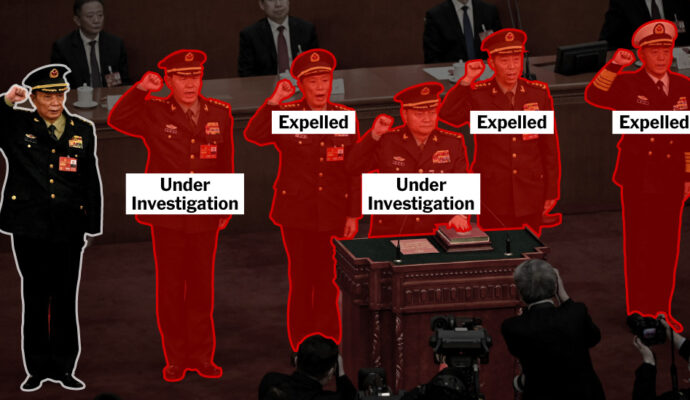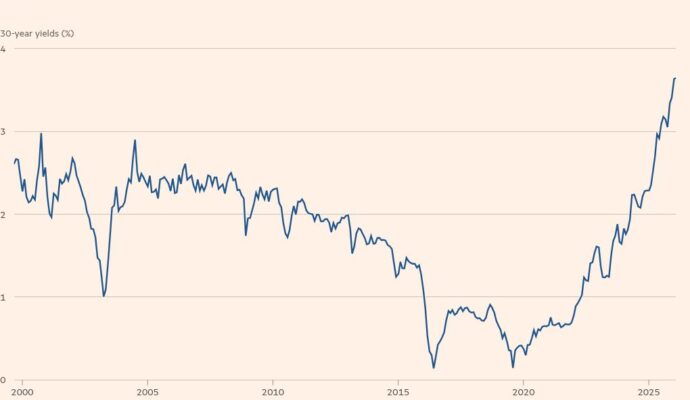
Unlock the Editor’s Digest for free
Roula Khalaf, Editor of the FT, selects her favourite stories in this weekly newsletter.
Vietnamese stocks fell sharply on Monday after a regulator said companies in one of Asia’s fastest-growing economies had misreported bond sales over the past decade.
The country’s main stock index fell 5.5 per cent, its biggest daily drop since the global market sell-off in April, after the release of a state probe of 462tn dong ($17bn) in domestic bonds issued between 2015 and 2023.
A report on 67 issuers by Vietnam’s Government Inspectorate issued on Friday found flaws in disclosure and misuse of proceeds in some bond sales.
The report also referred alleged violations by Novaland, one of Vietnam’s biggest property developers, for police investigation. Novaland denies any wrongdoing.
Vietnam’s stock market has been a bright spot for international investors this year, gaining 29 per cent in Vietnamese dong or 25 per cent in US dollar terms. Index provider FTSE Russell lifted it from “frontier” to “emerging market” status this month. Exports to the US have surged despite tariffs.
But Vietnamese investors have been grappling with the fallout from a property-focused domestic credit boom that ground to a halt between 2022 and 2023 with a crackdown on corruption.
The anti-graft campaign led to the prosecution of a $12bn loan embezzlement case last year.
Shares in real estate developers, including Novaland, brokers and some banks fell hardest on Monday, dropping close to a daily limit of 7 per cent.
Investors said the inspectorate’s conclusions were widely expected and that the sell-off also reflected recent foreign selling of Vietnamese stocks as traders took profits from this year’s strong performance.
Novaland said it had repaid or settled 15tn dong of nearly 35tn dong in bonds that were flagged by the inspectorate.
The company has been restructuring its debts, including international bonds, since 2023.
Vietnam had been off the radar for many mainstream investors because of limits on foreign ownership and a requirement to pre-fund trades. Many investors will wait for MSCI, a benchmark index provider for many emerging market funds, to follow FTSE Russell’s upgrade before buying Vietnamese stocks.
Vietnam’s government is targeting economic growth of about 8 per cent this year and in the coming years, it said on Monday, despite current US tariffs of 20 per cent.


